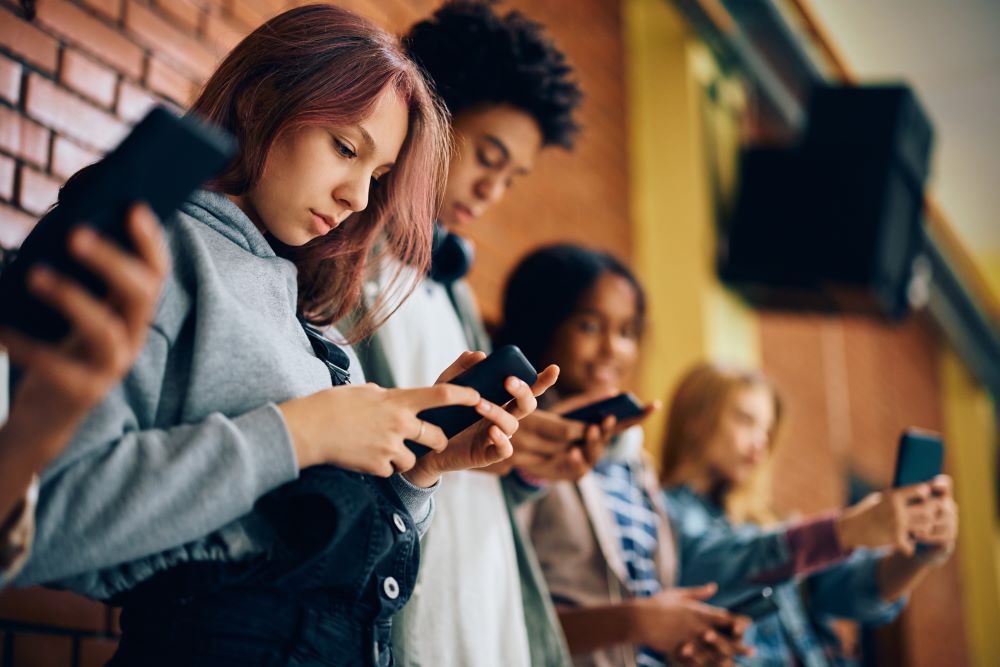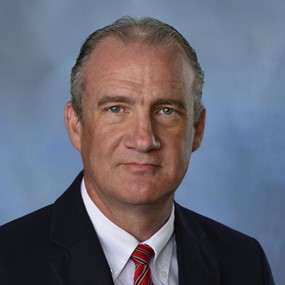Cell phone bans could improve overall school environment
Auburn social work researchers' pilot study of a school cell phone ban indicates increased student engagement, social interaction

As schools and statehouses grapple with cell phone use in the classroom, researchers in the College of Liberal Arts at Auburn University have evaluated a promising cell phone ban policy that benefits students and teachers alike.
Assistant Professor of Social Work Ethan Engelhardt, Associate Professor and Undergraduate Social Work Program Director Hilary Joyce, and Graduate Research Assistant AnnMarie Early investigated how a cell phone ban policy impacted a high school outside of Birmingham.
Every morning, students place their phones in Yondr bags, which are small, locked pouches that can be "unlocked" as they leave school. The researchers wanted to know how cell phone-free classrooms changed the environment.
"Cell phone use in school contributes to a lack of focus that negatively impacts learning. Social media use has also been linked to poor mental health outcomes, so cell phone use appears to compromise youth wellbeing, and its particularly problematic in schools," Joyce said. "Social workers look at social concerns from a systems perspective. They look beyond the individual to the environment that they’re in, and how we can improve this learning environment to help the student."
Through survey responses and focus groups, the researchers identified several perceived benefits and drawbacks to the ban.
Teachers, unsurprisingly, viewed the cell phone ban as a positive change. They reported more social interaction in class between students, including students helping others with assignments. They also believe it has increased students' interest in class.
Further, teachers reported feeling that their work was more meaningful thanks to the cell phone ban.
"We had several teachers that said things like, 'I wasn’t going to come back to this school until they created this policy,'" Engelhardt said. "By and large, it created a better classroom for the teachers. They enjoyed teaching more and students were engaged, wanted to be there and had new interest in topics that maybe they weren't interested in before."
Students were more disgruntled with the policy.
Across the school's 7-12th grade population, students believed the cell phone ban led to unnecessary discipline issues. They also argued that they would need their phones to contact their parents during an emergency. Older students were more likely to acknowledge the benefits but emphasized the importance of capturing memories like homecoming events with their phone cameras.
On the other hand, students reported improved grades, focus and social interaction. They also credited the ban with fewer fights and incidents of cheating.
"The goal is not just to take away tech, but to say what the technology, the cell phone use, is pulling from the classroom," Engelhardt said. "The cell phone bag policy is not bad by any means. It is not only curbing the behavior of utilizing cell phones, but is also creating new friends, new connections and helping students have a sense of belonging in a community."
Students have found ways around the cell phone ban. The school countered tampering with the Yondr bags by assigning every individual their own, and if it is damaged, the student must pay for a replacement. Some teachers are less strict about the ban than others, so punishment for breaking the rules is not consistent.
At the end of the pilot study, researchers recommended consistency between classrooms, creating a clear avenue to "earn" your phone back during class and considering cell phone privileges for students in higher grade levels, in common areas or during events that boost school spirit like pep rallies.
Joyce, who studies school climate and school social work, also warns against harsh punishments under the cell phone ban. She said being too strict will compromise the important positive relationships that the policy supports.
"Cell phone bans are not a cure-all for improving school climate," Joyce said. "It's a piece of the puzzle to improve student-to-student connection and student-to-teacher connection. Those relationships are really powerful protective factors for youth, so this should be of interest to educators, psychologists, social workers and technology professionals. This is a new and important line of research across disciplines. It's exciting to see Alabama on the front end of this."
Engelhardt, Joyce and Early will present their findings at the 2024 Annual Conference on Advancing School Mental Health to school social workers, counselors, psychologists, doctors, policymakers, educators and other interested parties in December.
Learn more about the Department of Sociology, Anthropology and Social Work.
Tags: Social Work Research Faculty







